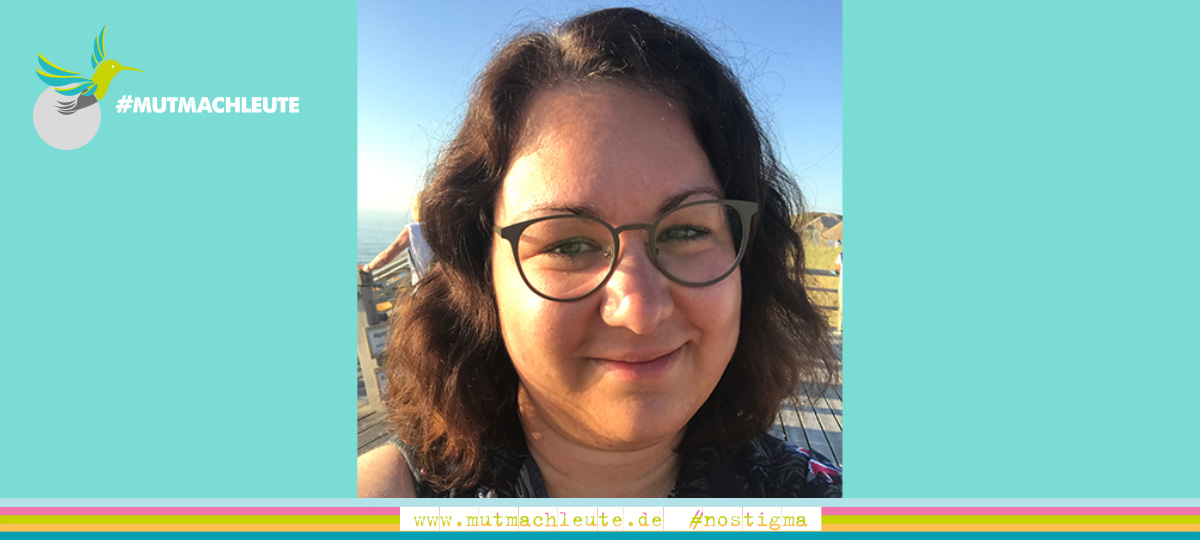Anxiety disorder: The storm is getting stronger? Doesn’t matter because so do I!
Affected: Julia Rabas
Vintage: 1987
Diagnostics: Generalized anxiety disorder, panic disorder
Therapy: Behavioral therapy
Resources: Walking, Reading, Yoga, Friends
How and when did you learn of your illness?
After a long period of stress and worry in the private environment coupled with a degree, in addition to which I also worked a lot, panic attacks crept into my life one evening in 2014. From now on, my life has been completely turned upside down. I couldn’t sleep, eat or get up from my bed. I didn’t know what was going on with me and I was panicking. Since the beginning of the year I had already felt exhausted and powerless and suffered from a depressive disorder. In the winter I received the diagnosis “Generalized Anxiety Disorder” from a psychiatrist. Now my illness had finally got a face.
Why did you decide to show your face now?
I have learned in recent years that I am not alone with my illness, but many do not dare to talk about it. I want to make a small contribution to greater openness in society for mental illness and show others that you don’t have to hide.
How did your environment react when it learned of your illness, and how would you want your environment (and society) to deal with your illness?
I was very lucky because my family and my circle of friends had a great understanding of me and supported me in everything, such as finding a therapist. They still do so today. Because my illness has been with me for six years now, in which I have fared better and sometimes worse.
I notice that understanding of mental illness seems to be changing within society. Although very slow. Especially in my generation, there are people who have suffered a similar fate or who know those affected and are willing to talk about it without condemning one. The fact that there are mental illnesses in addition to physical illnesses is becoming more and more aware. However, there are limits to this. Although I have also been very fortunate to have an understanding of my situation with my employer, I also know companies where sufferers have to pre-emit physical illnesses, because the truth is a no-go. Your own career can then be put on the line and, in the worst case, lead to the loss of a job. I would like society to accept mental illness as well as physical illness, and not to be afraid of your job or to fear disadvantages.
What things helped you most to accept the disease?
What helped me a lot is the understanding of why I got sick, because people always want to have a reason for everything. I also know that I am not alone.
What resources do you use in crisis situations?
When a wave of fear overwhelms me, talking to my therapist or my closest confidants helps me. Pronouncing and naming the things that are going on in me or scaring me allows me to look closely at the first step. I’m trying to figure out what’s behind the fear.
Perhaps it is a conflict or an acute threat, like the current pandemic? When I have identified the trigger, I try to move. I prefer to go for a walk in the forest. This helps me to reduce the excess adrenaline. Then I do things that are good for me. I meet (if i can) with friends, see my favorite series or go for a massage. Distraction is very important for me to stop my thought carousel. Yoga as well as breathing exercises and mindfulness I incorporate when possible.
What do you want to give to other people affected?
You are not alone and there is no shame or sign of weakness to seek your help. It is a sign of strength!
What do you want to give other relatives along the way? How can they best help you (on the one hand) and yourself (on the other hand)?
I know from my own experience how difficult it can be for relatives when the partner or friend is doing very badly. You want to help, but you also often feel powerless and suffer with it. As a person affected, I often had a bad conscience. I wanted to function “normally” again and not be a burden to anyone. I think the most important thing is mutual understanding and open communication. There are also self-help groups or the possibility to do therapy for relatives.
What makes your character and what trait do you value most about yourself?
I am an empathetic person and can put myself well into others. I also have a fine sense of moods. If something is in the air, I notice it immediately. This can sometimes be very beneficial.



